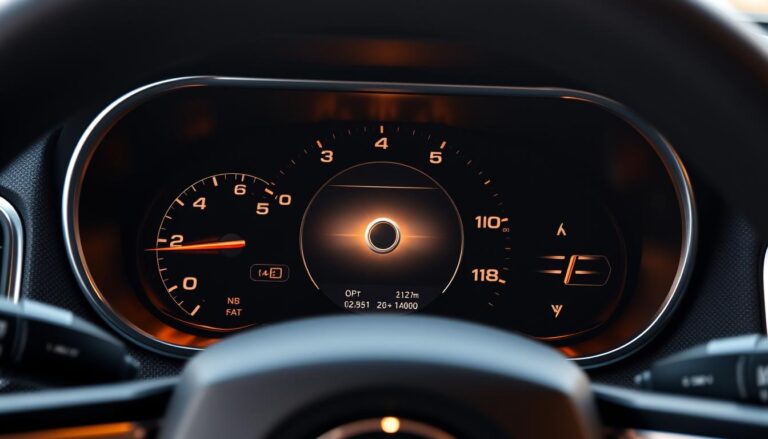Shopping for a used Jeep Compass can be an exciting yet challenging experience. While this compact SUV offers impressive features and off-road capability in a smaller package, not all model years deliver the same reliability. Understanding which Jeep Compass years to avoid can save you thousands in repair costs and countless headaches down the road.
Our comprehensive guide examines reliability data, owner complaints, and recall information to identify the most problematic Jeep Compass model years. We’ll also highlight the more dependable options and provide practical advice for used car shoppers. Whether you’re actively shopping or just researching, this information will help you make a confident, informed decision.
Jeep Compass Generations: A Quick Overview
Before diving into specific problematic years, it’s helpful to understand the Jeep Compass timeline. Since its introduction in 2007, the Compass has seen two distinct generations:
First Generation (2007-2016)
The original Compass marked Jeep’s entry into the compact crossover market. It underwent a significant refresh in 2011 that improved its styling and capabilities. This generation offered 2.0L and 2.4L four-cylinder engines with manual, automatic, and CVT transmission options.
Second Generation (2017-Present)
Completely redesigned for 2017, the second-generation Compass features more refined styling, improved interior quality, and better off-road capability. Engine options include a 2.4L Tigershark four-cylinder (until 2023) and a 2.0L turbocharged four-cylinder (from 2023).
Worst Jeep Compass Years to Avoid
Based on comprehensive analysis of NHTSA complaints, Consumer Reports reliability ratings, and J.D. Power data, these are the Jeep Compass model years with the most significant reliability concerns:

2007 Jeep Compass: The Inaugural Trouble
As the first model year, the 2007 Compass suffered from numerous “first production” issues that make it the most problematic year in the vehicle’s history.
Common 2007 Jeep Compass Problems:
- Control arm failure: Many owners reported control arm bushing failures at relatively low mileage (around 58,000 miles), requiring expensive repairs averaging $800-1,200.
- TIPM failures: The Totally Integrated Power Module issues caused random electrical problems affecting everything from door locks to fuel pumps, with replacement costs around $1,650.
- CVT transmission issues: Transmission overheating and premature failure were common, with repair costs often exceeding $3,000.
- Engine stalling: Unexpected engine shutdowns while driving created serious safety hazards.
- Water leaking into cabin: Poor sealing around the sunroof and roof areas led to interior water damage.
2008 Jeep Compass: Persistent Problems
While Jeep made some improvements for the 2008 model year, many significant issues remained unresolved.
Common 2008 Jeep Compass Problems:
- Tie rod and control arm failures: Owners reported having to replace these components multiple times, even at lower mileages around 50,000 miles.
- Engine stalling on highways: Particularly dangerous stalling issues occurred at highway speeds.
- Electrical system problems: Continued TIPM issues caused unpredictable electrical failures.
- Suspension noise: Creaking and knocking sounds from the suspension system were widely reported.

2012 Jeep Compass: Braking and Electrical Concerns
The 2012 model year brought some unique problems while continuing some earlier issues.
Common 2012 Jeep Compass Problems:
- Grinding brakes: A common complaint was grinding noise from the brakes, particularly the rear brakes, with no clear repair solution.
- TIPM failures: The electrical system problems continued with this model year.
- Fuel system issues: Problems with the fuel tank transfer tubes caused stalling.
- Airbag system faults: Several recalls addressed potentially dangerous airbag deployment issues.
2014 Jeep Compass: Noise and No-Start Issues
The 2014 model year had fewer severe mechanical problems but still presented significant concerns.
Common 2014 Jeep Compass Problems:
- Loud rear brake noise: This issue appeared at low mileage (around 10,000 miles) with no effective repair option.
- Wireless Control Module failures: Caused no-start conditions and disabled the remote keyless entry system.
- Seat belt pre-tensioner issues: Subject to recall due to potential failure during accidents.
- Electrical system problems: Continued issues with various electrical components.

2018 Jeep Compass: Second Generation Struggles
Despite being a redesigned model, the 2018 Compass had the highest number of complaints for the second generation.
Common 2018 Jeep Compass Problems:
- Engine dying while driving: Numerous reports of the engine shutting down unexpectedly during operation.
- Electrical system issues: Problems with starting, check engine light engagement, and other electrical faults typically appeared around 20,000 miles.
- Transmission performance: Rough shifting and hesitation, particularly with the 9-speed automatic transmission.
- Lower control arm separation: Subject to recall due to potential steering control loss.
- Tigershark engine oil consumption: Excessive oil consumption leading to potential engine damage.
Most Reliable Jeep Compass Years to Consider
Not all Jeep Compass model years have significant problems. These years have proven to be more reliable choices for used car shoppers:

First Generation Standouts
- 2009 Jeep Compass: Offered improved reliability over earlier models with decent fuel economy and car-like ride quality.
- 2010 Jeep Compass: Continued improvements with fewer reported issues and good value for money.
- 2015 Jeep Compass: One of the most refined first-generation models with fewer electrical and mechanical problems.
- 2016 Jeep Compass: The final year of the first generation benefited from years of improvements and refinements.
Second Generation Recommendations
- 2019 Jeep Compass: Significant improvements over the problematic 2017-2018 models with better reliability ratings.
- 2020 Jeep Compass: Continued refinement with fewer reported issues and updated technology.
- 2021 Jeep Compass: Solid reliability ratings with improved infotainment and safety features.
- 2023 Jeep Compass: Introduction of new 2.0L turbocharged engine replacing the problematic Tigershark.
Common Jeep Compass Problems Across All Years
While specific model years have their unique issues, some problems tend to appear across multiple Jeep Compass model years. Being aware of these common problems can help you better evaluate any used Compass you’re considering.

Jeep Compass Strengths
- Compact size with good maneuverability
- Available 4WD capability
- Affordable entry point to Jeep ownership
- Decent fuel economy for an SUV
- Good ground clearance for its class
Persistent Jeep Compass Issues
- CVT transmission problems (overheating, premature failure)
- Tigershark engine oil consumption issues
- Suspension component failures (tie rods, control arms)
- TIPM electrical system failures
- Brake noise and premature wear
Transmission Problems
The CVT (Continuously Variable Transmission) used in many first-generation Compass models is particularly problematic. Signs of CVT issues include jerking motions, shuddering during acceleration, unusual noises, and overheating. Repair costs typically range from $3,000-4,500, making this one of the most expensive potential problems.
Engine Issues
The 2.4L Tigershark engine used in many second-generation Compass models (2017-2022) has known oil consumption problems. This can lead to premature engine wear, stalling, and even complete engine failure if not monitored closely. Always check oil levels regularly if purchasing a Compass with this engine.
Electrical System Failures
The Totally Integrated Power Module (TIPM) is a common failure point across many Compass years. When it fails, it can cause numerous electrical problems including random horn activation, power window failures, stalling, and even airbag deployment issues. Replacement costs average $1,650.

Suspension and Steering Components
Control arm bushings, tie rods, and other suspension components tend to wear prematurely on many Compass models. Signs include unusual noises when going over bumps, uneven tire wear, and poor handling. These issues can affect vehicle safety if not addressed promptly.
Water Leaks
First-generation models (2007-2016) often experience water leaking into the cabin from the sunroof or roof seams. This can lead to interior damage, electrical problems, and mold growth if not properly addressed.
Used Jeep Compass Buying Advice
If you’re still interested in purchasing a used Jeep Compass despite the potential issues with certain model years, here are some practical tips to help you find a reliable example:

| Inspection Area | What to Check | Red Flags |
| Transmission | Test drive for smooth shifting, unusual noises, or hesitation | Jerking, shuddering, delayed engagement, burning smell |
| Engine | Check oil level, listen for unusual noises, look for leaks | Low oil level, blue exhaust smoke, knocking sounds |
| Electrical System | Test all electronics, lights, windows, locks | Intermittent failures, warning lights, non-functioning features |
| Suspension | Listen for noises over bumps, check for even tire wear | Clunking sounds, uneven tire wear, excessive bouncing |
| Interior | Check for water damage, dampness, musty smells | Water stains, damp carpets, mold smell, damaged electronics |
Essential Pre-Purchase Steps
- Vehicle History Report: Always obtain a comprehensive vehicle history report (Carfax or AutoCheck) to check for accidents, flood damage, and service history.
- Professional Inspection: Have any Compass you’re seriously considering inspected by a qualified mechanic familiar with Jeep vehicles before purchase.
- Check for Recalls: Visit the NHTSA website (nhtsa.gov) to verify if all recalls have been addressed for the specific vehicle you’re considering.
- Test Drive Thoroughly: Drive at various speeds and conditions to test acceleration, braking, and handling. Listen for unusual noises.
- Negotiate Based on Issues: Use any identified problems as negotiation points to reduce the purchase price or request repairs before finalizing the sale.

Ready to Buy a Jeep Compass?
Download our comprehensive Used Jeep Compass Buyer’s Checklist to take with you when shopping. This detailed guide covers all critical inspection points and common problem areas specific to the Compass.
Reliable Alternatives to Consider
If you’re concerned about the reliability issues of certain Jeep Compass years, here are some comparable alternatives with better overall reliability ratings:

Honda CR-V
Consistently rated among the most reliable compact SUVs with excellent resale value, good fuel economy, and spacious interior. The 2017-2021 models are particularly recommended.
Mazda CX-5
Offers more upscale interior quality, engaging driving dynamics, and strong reliability ratings. The 2017-2022 models provide excellent value on the used market.
Subaru Forester
Features standard all-wheel drive, excellent visibility, and strong safety ratings. The 2019-2022 models offer a good balance of reliability and modern features.
Frequently Asked Questions

What is the most reliable year for Jeep Compass?
Based on reliability data and owner reports, the 2019, 2020, and 2021 Jeep Compass models are among the most reliable. From the first generation, the 2015 and 2016 models show better reliability than earlier years. These models have fewer reported issues and benefit from improvements made throughout the production run.
How long do Jeep Compass vehicles typically last?
With proper maintenance, a Jeep Compass can last 150,000 to 200,000 miles. However, this varies significantly based on the model year, maintenance history, and whether it has any of the common issues mentioned in this article. Models with the CVT transmission or Tigershark engine may have shorter lifespans without proactive maintenance.
Are Jeep Compass expensive to maintain?
The Jeep Compass has higher than average maintenance costs compared to other compact SUVs. According to RepairPal, the average annual maintenance cost for a Jeep Compass is around 6, which is higher than the average for compact SUVs (1) and all vehicles (2). Problematic model years can incur significantly higher costs due to transmission, engine, or electrical system repairs.
Is the Jeep Compass a good off-road vehicle?
The Jeep Compass offers better off-road capability than many compact crossovers, especially in Trailhawk trim, but it’s not as capable as larger Jeep models like the Wrangler or Grand Cherokee. The Compass is best suited for light to moderate off-road use rather than serious trail driving. Second-generation models (2017+) have significantly better off-road capability than first-generation models.
What should I pay for a used Jeep Compass?
Prices vary widely based on model year, trim level, mileage, and condition. As of 2023, you can expect to pay approximately ,000-,000 for a 2010-2015 Compass in good condition, ,000-,000 for a 2016-2018 model, and ,000-,000 for a 2019-2021 model. Always check current market values through Kelley Blue Book or similar services before purchasing.
Final Thoughts: Making an Informed Decision
When shopping for a used Jeep Compass, knowledge is your best defense against purchasing a problematic vehicle. By avoiding the most troublesome years (2007, 2008, 2012, 2014, and 2018) and focusing on more reliable options (2015, 2016, 2019, and newer), you can significantly increase your chances of a positive ownership experience.

Remember that individual vehicle history and maintenance are often more important than model year alone. A well-maintained example from a “problem year” might prove more reliable than a neglected vehicle from a “good year.” Always conduct thorough research, get a professional inspection, and check the vehicle history before making your final decision.
Whether you choose a Jeep Compass or one of the alternatives we’ve suggested, taking the time to research and inspect your potential purchase will help ensure you drive away with a reliable vehicle that meets your needs for years to come.


